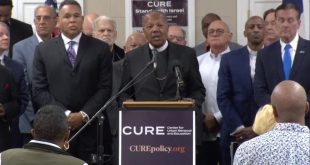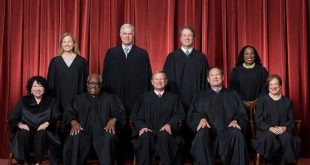The Roman Catholic bishop of Charleston, South Carolina, and a non-profit called South Carolina Independent Colleges and Universities filed a lawsuit to block the state’s version of the Blaine Amendment, which prohibits using government funds for religious schools.
The coalition claims that the amendment violates the Equal Protection and Free Exercise clauses of the U.S. Constitution.
U.S. Congressman James G. Blaine introduced the bill in 1875 to amend the Constitution to bar government funds from directly benefiting religious schools. The amendment failed, but 38 states incorporated the language into their constitutions.
The Blaine Amendment is rooted in anti-Roman Catholicism, and government schools at the time promoted Protestant values.
South Carolina amended the state constitution in 1973 to allow government funds that indirectly benefit private and religious schools but still bars funds that directly benefit such schools. The coalition asked the court to bar state officials from using the Blaine Amendment to block COVID-19 funds from going to these schools.
The Heritage Foundation published an op-ed written by John Malcolm, Vice President of the Institute for Constitutional Government, and Sarah Parshall Perry, Legal Fellow at the Meese Center, about the case. An excerpt:
South Carolina received more than $48 million under the CARES Act to distribute to educational institutions and related businesses that were affected by the pandemic.
To distribute those funds, [Gov. Henry] McMaster created a grant program called Safe Access to Flexible Education, and eligible families could apply for needs-based grants of up to $6,500 per student to help offset tuition costs.
The governor expressed his desire to include private and religious schools in the program, but the state Supreme Court said “no”—not once, but twice.
Malcolm and Perry said many of the private schools that don’t receive funds “benefit minority populations.” They also noted that the amendment has “bigoted” racial origins as well as religious. Malcolm and Perry wrote that Senator Ben Tillman, a “self-proclaimed white supremacist member of a post-Civil War militia responsible for the lynching of blacks in the South,” authored the 1895 amendment.
 CURE News and Clergy Blog News and Commentary for Christians
CURE News and Clergy Blog News and Commentary for Christians



